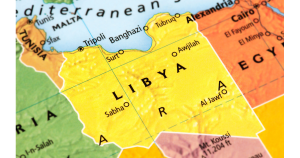On 8 March 2023, NPWJ recognises the importance of International Women’s Day, reaffirming the significant accomplishments of women’s rights movements and human rights defenders globally in the past few decades. We reiterate the importance – not just today, but every day – of fighting for gender equality and reproductive rights, and combatting the endemic sexual and gender-based violence facing women worldwide.
Despite significant steps toward equality being achieved in some areas, millions of women and girls worldwide still face severe obstacles to social, political and economic participation and prosperity. They face gendered societal stereotypes and deeply rooted cultural biases that serve to limit or deny their right to education, social integration and political empowerment. Daily, millions of girls and women are exposed to serious violations of their autonomy and rights solely based on their gender. NPWJ works with women’s rights activists across the world to target any kind of form of violence and violations against women rights including FGM, forced and child marriage, marital rape, denial of reproductive rights and other violations against women, arising from their subordinate status that are primarily being addressed as cultural issues, rather than as human rights violations.
In the past year, there have been numerous regressive steps in relation to the rights of women and girls; the recent developments in Afghanistan and Iran are of particular concern. Since the Taliban took control of Kabul in August 2021, Afghani girls have been subjected to an enormous amount of restrictions on their human rights, particularly relating to education and work, which have increasingly reduced their individual freedom and autonomy, affected every aspect of their daily lives and severely prevented the enjoyment of their right to live free from discrimination.
The violent repression of women and girls in Iran has also significantly increased in the past year and is part of a wider and historical struggle for freedom. Since September 2022, the women’s rights movement in Iran has intensified with millions taking to the streets in a wave of protests following the death of Jîna Mahsa Emînî, echoing historical calls for ‘woman, life, freedom’ and an end to the Ayatollah regime and its stringent regulations. Their voices are standing against the repression that women and other marginalised communities in Iran, including ethnic minorities and LGBTQ+ people, have been continually facing, unifying their voices with the aim of overthrowing the “gender apartheid regime”.
At the same time, due to the ongoing war in Ukraine following Russia’s invasion, women and girls are paying a high cost for their lives, facing increasing levels of sexual violence and devastating scenes of destruction throughout their environment. While women and girls are continually facing restrictions on their rights in other ongoing conflict zones such as Syria, Yemen, Myanmar and Ethiopia, these concerning developments are not limited to just one part of the world: in the USA – a country which seemingly supports the rights of women and girls – the Supreme Court overturned the landmark Roe vs. Wade decision made over fifty years ago in June 2022. The federal constitutional right to abortion in the USA has therefore been stripped, leaving women without access to vital healthcare and undermining their freedom of choice. This is an extremely historically significant regressive step for the rights of women and girls, leaving those in the USA with less reproductive rights than those afforded to their parents – following the decision in 1973 – and setting a concerning precedent for the further curtailment of reproductive rights worldwide.
In many parts of the world, women who have the courage to fight for their dignity by challenging patriarchal and regressive social conventions are exposed to great personal risks, including social rejection, harassment, imprisonment and even death. NPWJ therefore reaffirms its commitment to promoting and protecting the human rights of women and girls, urging all governments and States worldwide to implement the United Nations Sustainable Development Goal 5, which aims to achieve gender equality and the self-determination of all women and girls, by turning their political commitment into more concrete, effective and coordinated policies to address the unique and most pressing challenges facing women worldwide and to ensure the full enjoyment of their human rights. The enactment and enforcement of legislation unequivocally banning all forms of gender-based violence, empowering and supporting survivors and eradicating all forms of impunity in relation to these crimes is essential in tackling gender inequalities and preventing further violence against women and girls.




